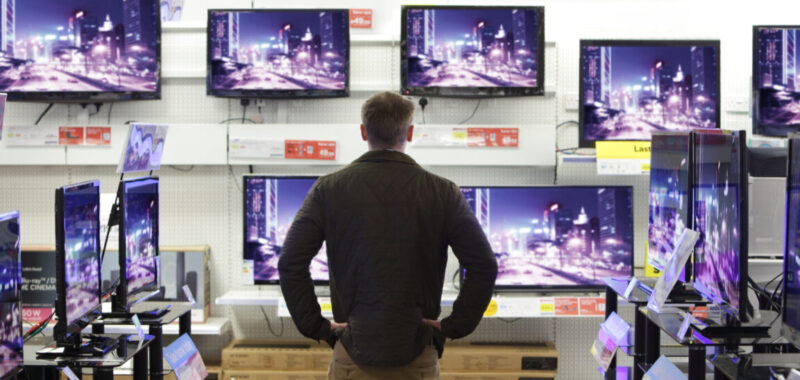While Ars readers may be more guarded about Google having an insider look at their data, many web users have a more accepting attitude. This has opened the door for TVs to test users’ max tolerance for ads and tracking to deliver more relevant ads.
That said, there’s a fine line.
“Companies have to be careful of… finding that line between taking in advertising, especially display ads on the home screen or whatnot, and it becoming overwhelming [for viewers],” Wolk said.
One of the fastest-growing ad vehicles for TVs currently and into 2025 is free, ad-supported streaming television (FAST) channels that come preloaded and make money from targeted ads. TCL is already experimenting with what viewers will accept here. It recently premiered movies made with generative AI that it hopes will fuel its FAST business while saving money. TCL believes that passive viewers will accept a lot of free content, even AI-generated movies and shows. But some viewers are extremely put off by such media, and there’s a risk of souring the reputation of some FAST services.
OS wars
We can expect more competition from TV OS operators in 2025, including from companies that traditionally have had no place in consumer hardware, like ad tech giant The Trade Desk. These firms face steep competition, though. Ultimately, the battle of TV OSes could end up driving improvements around usability, content recommendations, and, for better or worse, ad targeting.
Following heightened competition among TV OSes, Omdia’s Gray expects winners to start emerging, followed by consolidation.
“I expect that the final state will be a big winner, a couple of sizeable players, and some niche offerings,” he said.
Companies without backgrounds in consumer tech will have difficulty getting a foot into an already crowded market, which means we may not have to worry much about companies like The Trade Desk taking over our TVs.

